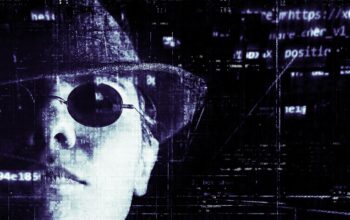Introduction to Cybersecurity in Esports
Cybersecurity in esports has become a critical aspect of the gaming industry. Just like professional athletes protect their bodies with skill and strategy, cybersecurity is the armor that protects players’ identities and data from malicious attacks. But, how exactly does this all work? Let’s dive into five notable areas where cybersecurity trends are transforming esports.
A Bridge Between Cyber Teams and Esports
Esports teams rely on data-driven strategies towin competitions. They use AI-generated heatmaps and in-depth reports to analyze player patterns and create winning tactics. This sophistication in analyzing gameplay helps teams strengthen their positions and strategies. Moreover, advanced data can help detect and prevent cheating by identifying unusual player behaviors, ensuring fair gameplay.
Anti-Cheat Systems and Fair Play
Imagine a game where every move is scrutinized, and any sign of cheating is met with immediate action. That’s what anti-cheat systems do. These systems use machine learning to track player behavior, identifying patterns that indicate cheating like speed hacks or aimbots. If a player is found cheating, they can be penalized or banned, maintaining the integrity of the game.
Blockchain and Cryptocurrency in Gaming
Blockchain technology is changing how games operate, making transactions transparent and secure. It also enables decentralized gaming platforms where games are provably fair. Furthermore, cryptocurrencies are becoming popular payment methods, opening up new markets by offering a universal currency that’s not affected by local economies.
Cybersecurity Threats in Esports
The threat of cyber attacks on esports is real and growing. These attacks can compromise player data and disrupt competitions. Cybersecurity experts are using advanced technologies like AI to combat these threats by detecting and preventing breaches. The Global Information Security Conference (GISEC) highlights the importance of building robust defenses against emerging threats.
The Role of Cybersecurity Education
Education plays a vital role in raising awareness about cybersecurity. Events like GISEC emphasize the need for more cybersecurity professionals and diversity in the tech industry. By empowering individuals with knowledge, we can better protect gaming communities from cyber threats.
Key Trends and Stories
- Cyber Teams Revolutionize Esports: By integrating data analysis and cybersecurity, cyber teams enhance gameplay and prevent cheating.
- AI in Gaming Security: AI and machine learning are crucial for detecting abnormalities in player behavior, ensuring fair play.
- Blockchain Security in Games: Blockchain ensures transparency and fairness in decentralized gaming platforms.
- Cybersecurity Challenges: The evolving nature of cyber threats requires continuous innovation to maintain game integrity.
Conclusion
Cybersecurity is no longer just a side note in esports; it’s a central theme. As the gaming industry continues to evolve, so does the importance of protecting players and their data from online threats. By embracing innovative security measures and promoting education, we can build a safer, more enjoyable experience for everyone involved in esports.
References:
- https://www.yogonet.com/international/news/2025/04/07/100758-global-igaming-trends-transformative-forces-shaping-the-industry-in-2025
- https://cloud.google.com/transform/101-real-world-generative-ai-use-cases-from-industry-leaders
- https://jayisgames.com/review/how-cyber-teams-are-revolutionizing-esports-and-competitive-gami.php
- https://www.cyberpeace.org/resources/blogs
- https://hipther.com/latest-news/2025/04/04/90301/cybersecurity-roundup-partnerships-funding-and-emerging-threats-april-4-2025-ft-eu-bci-kaohoon/
- https://www.lsc.ohio.gov/assets/legislation/136/hb96/rh/files/hb96-comparison-document-as-reported-by-house-committee-136th-general-assembly.pdf
- https://hipther.com/latest-news/2025/04/07/90377/cybersecurity-roundup-partnerships-funding-and-emerging-threats-april-7-2025-featuring-und-gisec-2025-nri-dnsfilter-salt-security-and-crowdstrike/
- https://la-cyber.com/Current-Active-Threats.php



